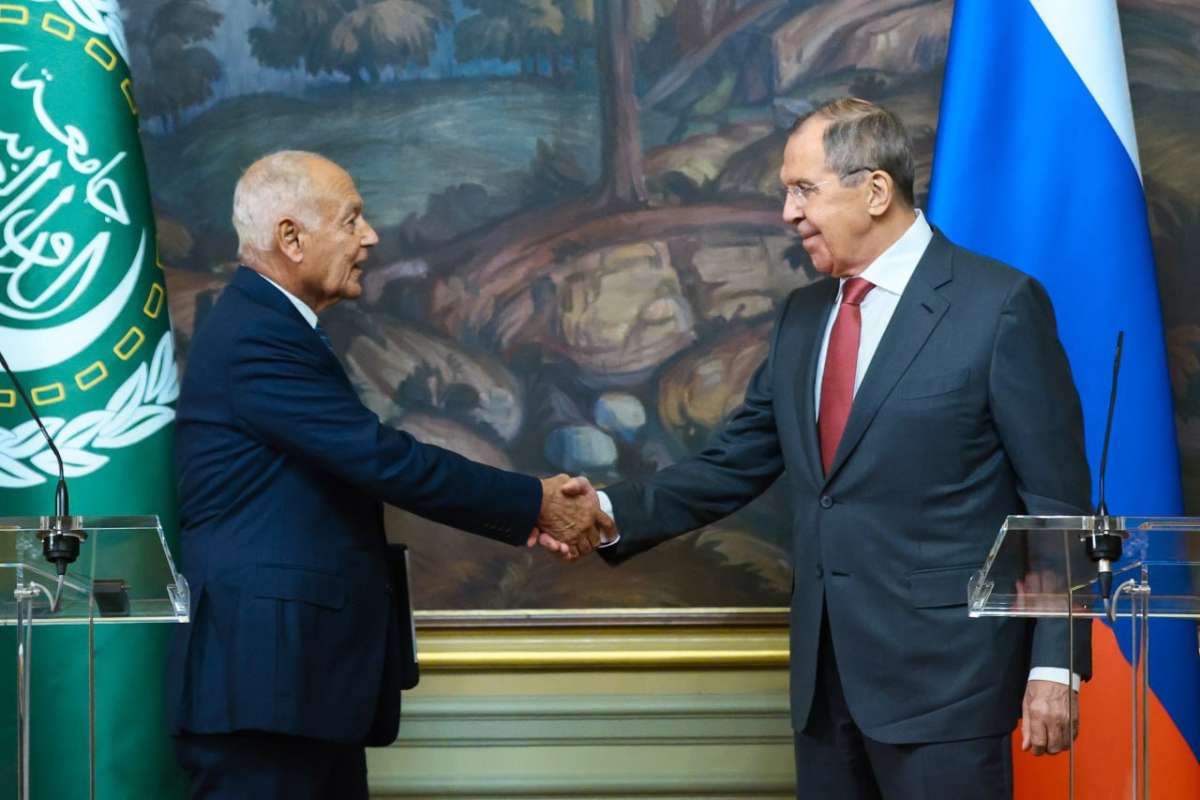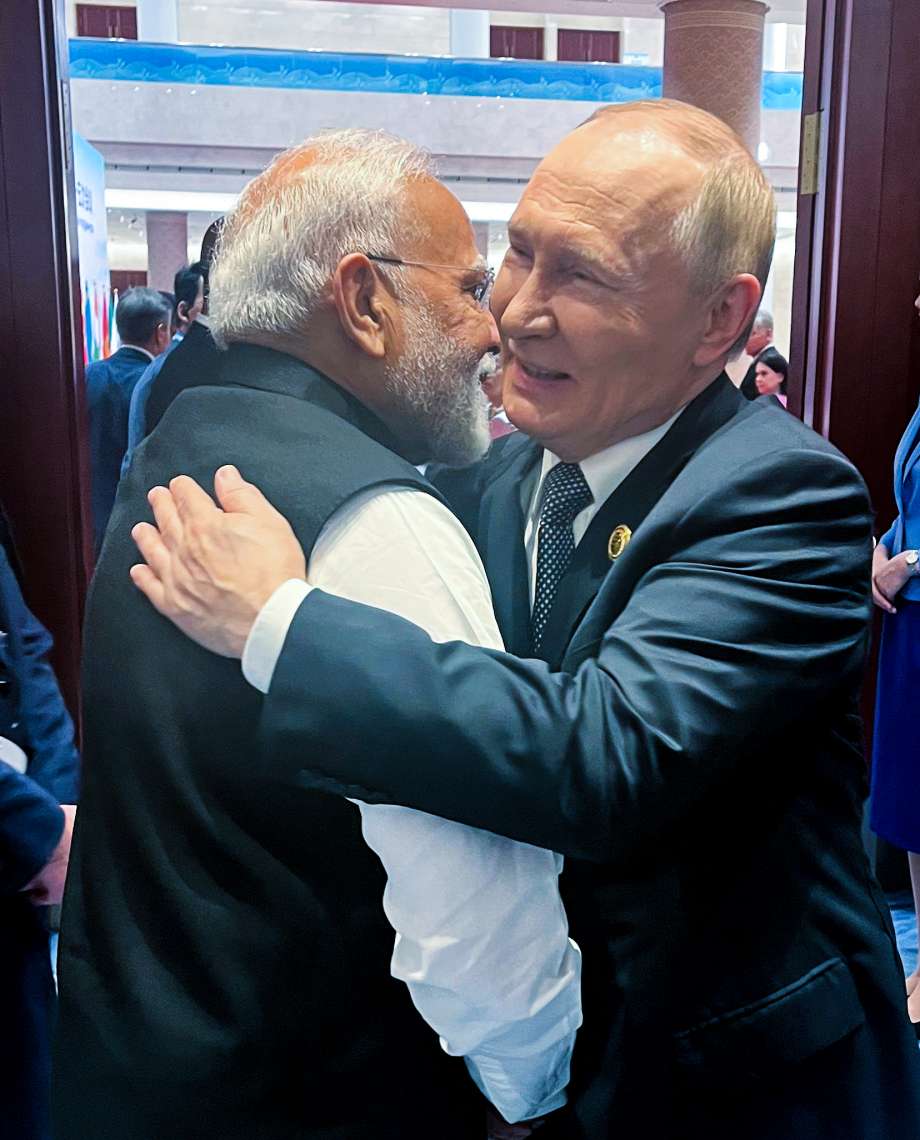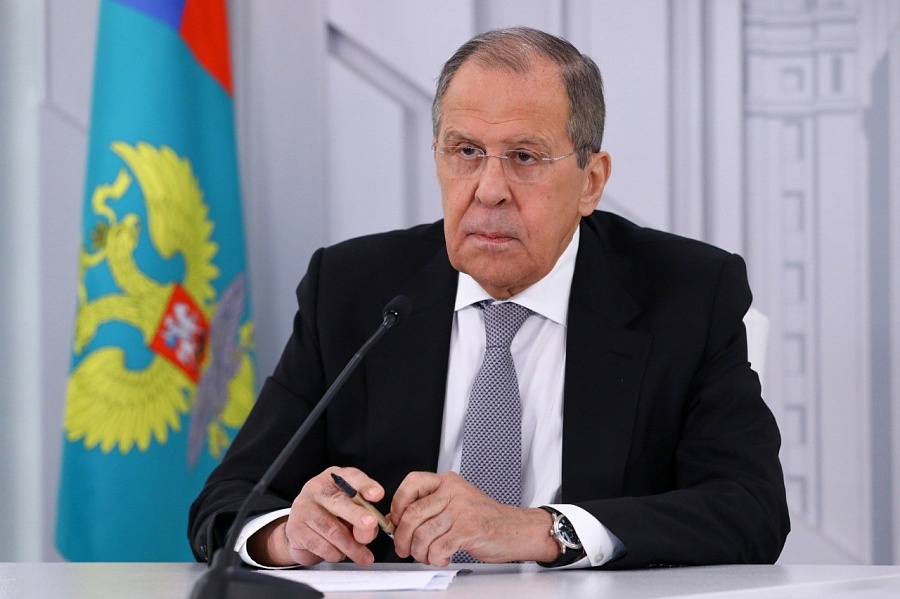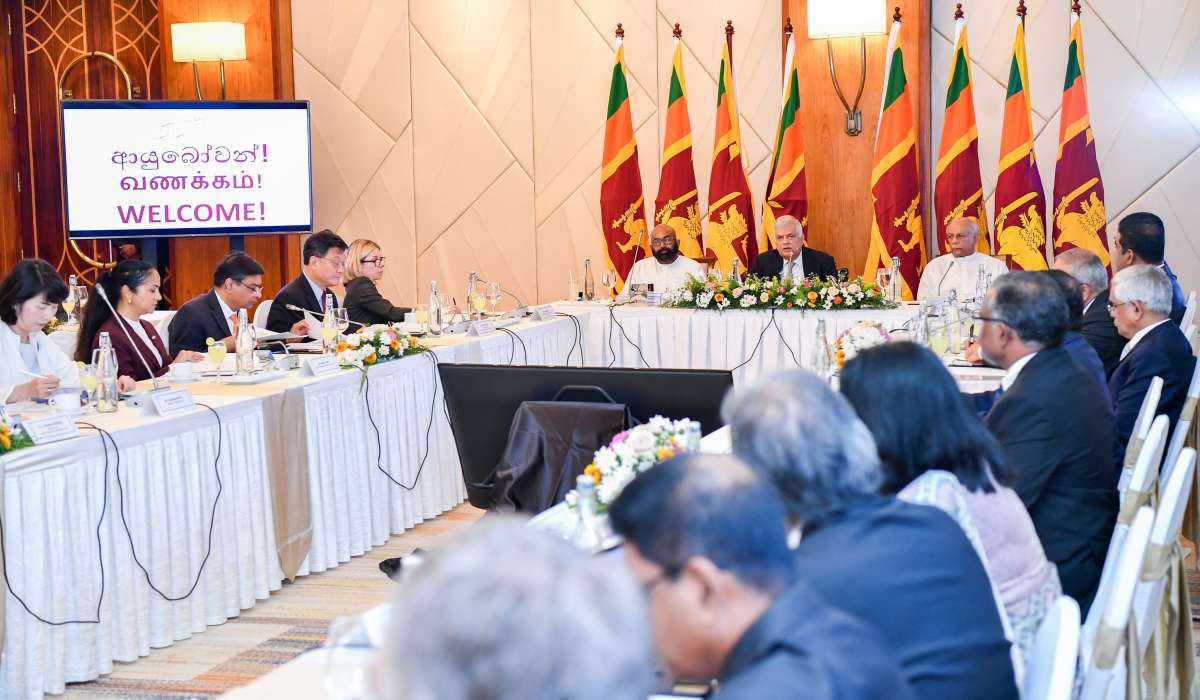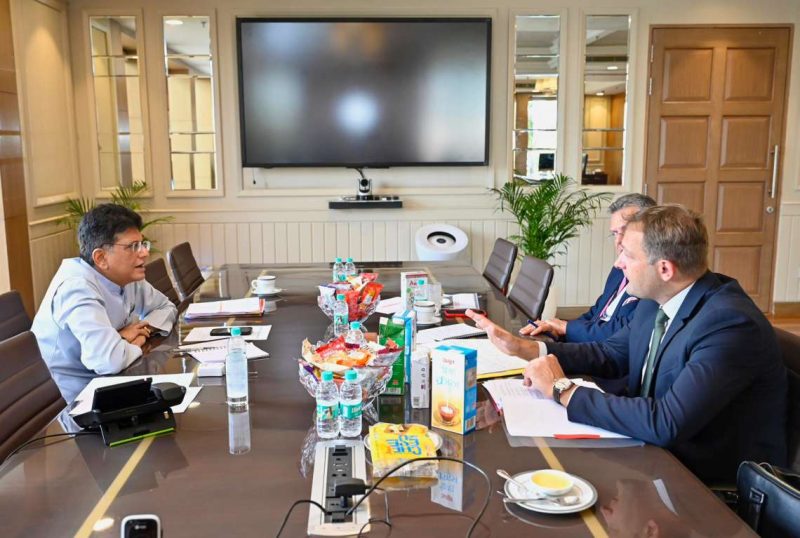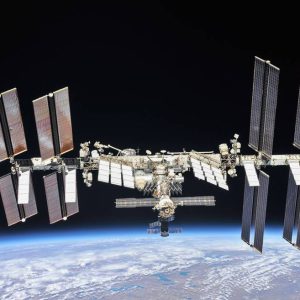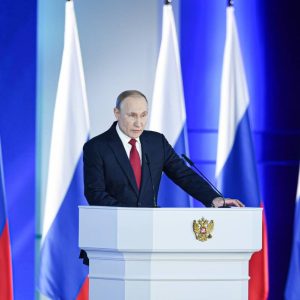Russian position is not just aimed at fishing in the present troubled waters and emerging as a mediator in what is fast proving to be the biggest crisis in the Middle East in decades, not to mention an unmitigated humanitarian disaster, where most of the West has shown itself to be less than impartial, writes Vikas Datta
A day after the Hamas attack on Israel and the relentless Israeli bombardment that followed, Arab League chief Ahmed Aboul Gheit chose to head for Moscow to discuss the crisis, and at a joint press conference, Russian Foreign Minister Sergey Lavrov unequivocally declared that a Palestinian state was the “most reliable” solution for peace and security, not fighting.
Later that week, Iraqi Prime Minister Mohammed al-Sudani was in Russia, and in a joint press meeting, President Vladimir Putin while castigating Hamas for its cruelty, fired a salvo at the US as he stressed that the ongoing crisis in the Middle East exposed Washington’s inability to resolve conflicts by seeking to “monopolise” the peace settlement and trying to “impose its own solution”.
If that was not all, nearly three weeks into the conflict, Russia sent the Israeli government into a fit of apoplexy by hosting a Hamas delegation, led by its senior political council member Moussa Abu Marzouk, for “talks on the release of hostages, especially those with Russian citizenship” and paying no attention to the shrill Israeli rhetoric to expel them forthwith.
Coincidentally, Iranian Deputy Foreign Minister Ali Bagheri Kani was also in Moscow at that time and while he met the Hamas leaders, it is not known whether any tripartite meeting was held.

Connecting the dots, it is evident that Russia, which has avoided taking a maximalist position on attributing the blame for the current spell of blood-letting in the Middle East — like most of the world save the Western powers and their allies — aims at playing – and proving it can play – its own independent role in the region where it traditionally had sway in the Soviet era.
It has sought to underline its credentials by showing it is one of the few powers that has contacts with both Israel and Palestinians, including Hamas, and Iran.
But, the Russian position is not just aimed at fishing in the present troubled waters and emerging as a mediator in what is fast proving to be the biggest crisis in the Middle East in decades, not to mention an unmitigated humanitarian disaster, where most of the West has shown itself to be less than impartial.
Its aim is both tactical and strategic – on one hand, the ongoing conflict diverts attention – and aid – from Ukraine of the Western powers who have rushed to support Israel unconditionally – and only mention the Palestinian plight as an afterthought – unmindful of the blowback, while helping Moscow to gain inroads among regional powers where public sentiment is increasingly swinging against the West, including in key US allies like Egypt, Jordan, and the Gulf states.

Secondly, the conflict ties the US, which had turned its attention away from the Middle East under its “pivot to Asia”, back to the region – for the foreseeable future – as Washington’s move to achieve calm under the “Abraham Accords” lies in tatters with the prized aspiration of bringing Saudi Arabia onboard to complement the two Gulf states and Morocco now virtually dead. This will only benefit Russia – and China, as even the US will find it difficult to focus on the Middle East, Ukraine, and the Indo-Pacific.
Meanwhile, the increasing calls by many nations to revive the two-nation solution will mean the US will have to spend more diplomatic capital here.
Russia has also made it clear that it has no intention of deploying any military force into the region and wants to stress on diplomatic solutions, such as revival of the “Middle East Quartet” to enable negotiations between Israel and Palestinians.
But, Russia did not only begin its renewed Middle East outreach with the Hamas-Israel conflict, notwithstanding its intervention on the side of key ally, President Bashar Al Assad in the Syrian Civil War, but it clearly seems to be a work in progress.
Weeks before the Hamas attack, it played host to Libyan National Army commander, Field Marshal Khalifa Haftar, who controls a large amount of the restive country, and he and President Vladimir Putin discussed the national and regional situation in detail.
Haftar’s visit came a month after a Russian Defense Ministry delegation, led by Deputy Defence Minister Colonel General Yunus-Bek Yevkurov. visited Libya and met him to discuss the potential for collaboration in the fight against international terrorism and other issues of mutual interest.
Amid this, the US Central Command chief had visited Libya and even met Haftar in what was seen as what Russia was up to – in what was once a close client, and has been in turmoil since the Western intervention to force out Colonel Gaddafi.
Meanwhile, Russia also flexed its muscles on the current Middle East crisis at the UN.
After its proposal – the first in the UN Security Council – on stopping the conflict did not secure the necessary number of votes, it abstained from the Brazilian statement, which was vetoed by the US, and then, went on with China to veto the US’ own draft proposal, leading to the powerful organ remaining stymied on the growing crisis.
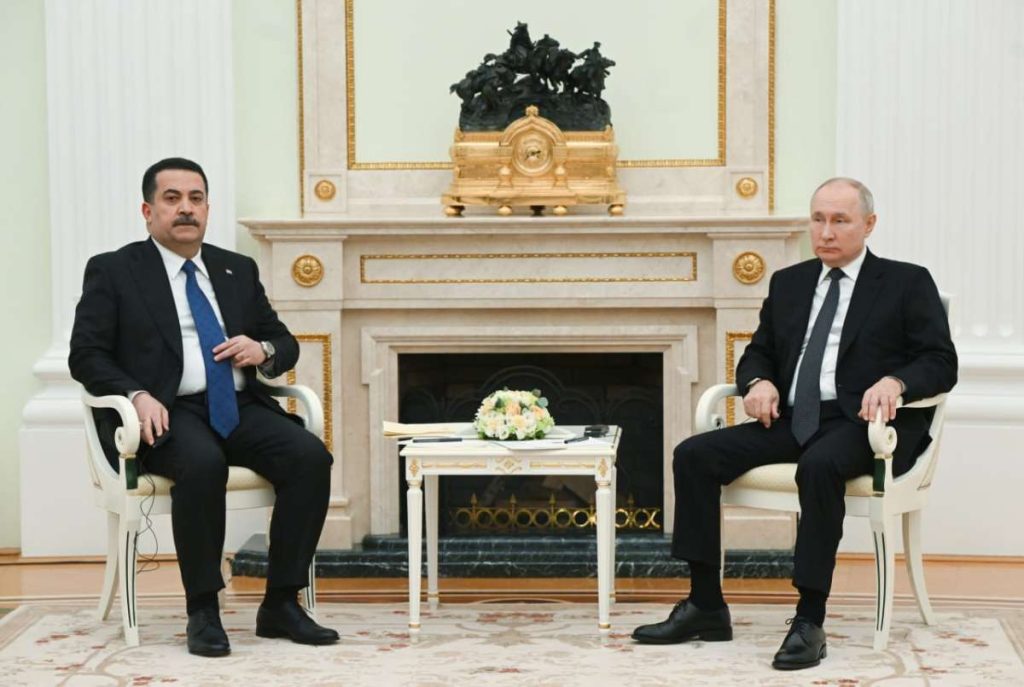
The very next day, Russia said efforts to agree on a “balanced” United Nations Security Council resolution on the Israel-Hamas conflict should continue.
Even before it sent Israel into paroxysms of fury by hosting Hamas, its stand had evoked “displeasure” from the Israeli Foreign Ministry, RT reported, quoting sources, as Israeli diplomats told their Russian counterparts that “Russia’s conduct and the remarks against Israel don’t correspond with the severity of the situation Israel is in…” and took exception to the “role Russia is playing”, noting that its proposed resolution in the UN Security Council did not include “an explicit condemnation” of Hamas.
An unfazed Russia backed UN Secretary General Antonio Guterres, whose remarks on the background of the crisis had led an apoplectic Israel to demand he quit, with its Deputy Ambassador to the UN Dmitry Polyansky noting that while there can be no justification for what Hamas did, it is not appropriate to call it “unprovoked”.
“We cannot close our eyes to what is happening there, we must be absolutely honest,” Polyansky said. “Otherwise the UNSC cannot count on having any role in a future settlement.”
Will the others heed this?


